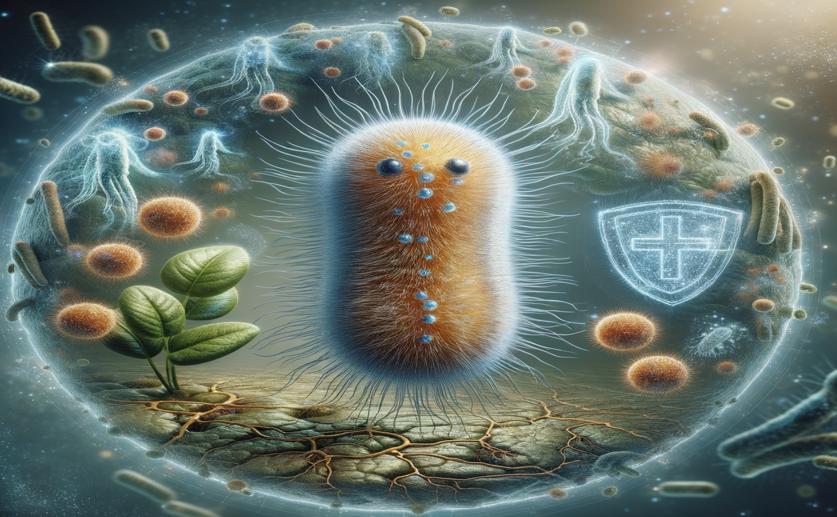
Complete Genome of a Biocontrol Agent Effective Against Plant Pests and Diseases
Jenn Hoskins
8th June, 2024

Image Source: Natural Science News, 2024
Key Findings
- Researchers in Brazil found that the bacterial strain Ag109, identified as Bacillus velezensis, can control major soil pathogens in soybean cultivation
- Ag109 reduced populations of harmful nematodes by up to 69% and showed antifungal activity against several fungi, improving plant health and root mass
- Genomic analysis of Ag109 revealed genes that produce beneficial compounds and promote plant growth, highlighting its potential as a multifunctional biocontrol agent
References
Main Study
1) Complete genome sequence of Bacillus velezensis strain Ag109, a biocontrol agent against plant-parasitic nematodes and Sclerotinia sclerotiorum
Published 7th June, 2024
https://doi.org/10.1186/s12866-024-03282-9
Related Studies
2) Breeding for disease resistance in soybean: a global perspective.
3) Diversity and Pathogenicity of Rhizoctonia Species from the Brazilian Cerrado.
4) Differential gene expression in response to water deficit in leaf and root tissues of soybean genotypes with contrasting tolerance profiles.



 6th June, 2024 | Greg Howard
6th June, 2024 | Greg Howard